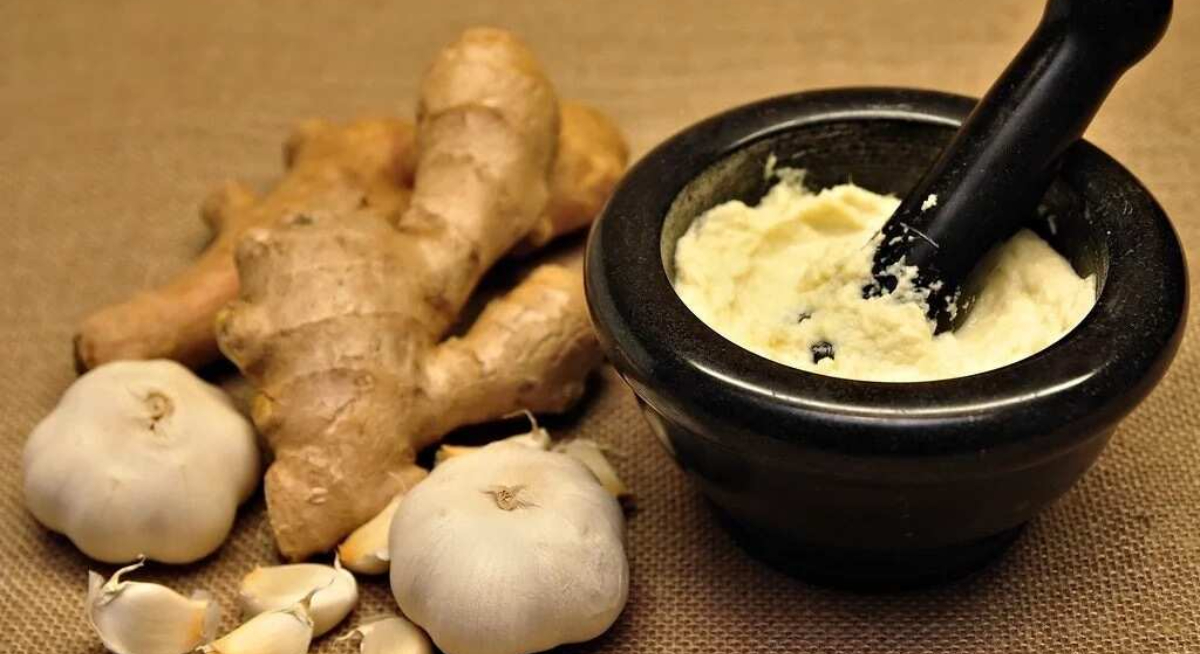
Ginger and garlic are both celebrated for their numerous health benefits. From boosting the immune system to aiding digestion, these two ingredients have been used for centuries in traditional medicine.
However, there’s a common belief that combining ginger and garlic might reduce their individual benefits. But is there any truth to this claim? Here is all you need to know
Health benefits of garlic
Garlic isn’t just delicious, it’s also super good for you! This tiny little bulb is packed with all sorts of health benefits. First off, garlic is loaded with vitamins and minerals like vitamin C, vitamin B6, and manganese, which help support your immune system and keep you healthy. But that’s not all! Garlic also contains compounds like allicin, which have been shown to have anti-inflammatory and antioxidant properties. This means that garlic can help reduce inflammation in your body and protect your cells from damage caused by free radicals.

Garlic, known for its distinct taste and aroma, is also packed with health-promoting compounds. Allicin, one of the main active compounds in garlic, is responsible for many of its health benefits. Garlic is known to have antibacterial, antiviral, and antifungal properties. It can help lower blood pressure, improve cholesterol levels, and boost the immune system.
Research published in the Journal of Immunology Research suggests that garlic can enhance the function of certain immune cells, helping the body fight off infections. Another study found that garlic supplementation can significantly reduce both systolic and diastolic blood pressure.
Health benefits of Ginger
Ginger, with its spicy and aromatic flavour, is not only a popular spice but also a potent medicinal herb. It contains bioactive compounds like gingerol, which have antioxidant and anti-inflammatory properties. Studies have shown that ginger can help alleviate nausea, reduce muscle pain, lower blood sugar levels, and even aid in weight loss.

One study published in the Journal of Alternative and Complementary Medicine found that ginger can effectively reduce muscle pain caused by exercise-induced muscle injury. Another study published in the European Journal of Clinical Investigation concluded that ginger can lower fasting blood sugar levels in people with type 2 diabetes.
Effects of ginger and garlic
Ginger and garlic contain different bioactive compounds that work through different mechanisms in the body. Combining them may result in a synergistic effect, where the combined action is greater than the sum of their individual effects.
For example, allicin from garlic and gingerol from ginger have both been shown to have antioxidant and anti-inflammatory properties. When combined, they may work together to provide even greater antioxidant and anti-inflammatory benefits.
Does mixing ginger and garlic reduce their benefits?
This might just be a misconception that combining ginger and garlic might reduce their individual health benefits. In fact, combining ginger and garlic may actually enhance their therapeutic effects.
A study published in the Journal of Agricultural and Food Chemistry investigated the potential synergistic effects of ginger and garlic. The researchers found that the combination of ginger and garlic exhibited stronger antioxidant activity compared to individual extracts. This suggests that combining these two ingredients may lead to greater health benefits.







